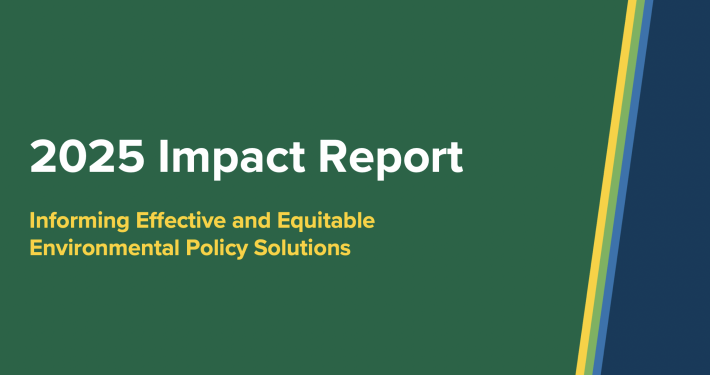September 7, 2023
Are our efforts to address climate change doomed due to partisan politics?
Democratic unity and initiative, as well as Republican states’ clean-energy markets and extreme weather, may help
September 7, 2023
Democratic unity and initiative, as well as Republican states’ clean-energy markets and extreme weather, may help
Photo courtesy of drnadig / iStock
In a political environment deeply polarized along partisan lines, Americans are more divided on climate change than ever before (Gallup). For years, partisan division translated into policy gridlock — but it may not matter as much anymore.
In a new article, UCLA Luskin Center for Innovation faculty director Megan Mullin and co-author Patrick J. Egan of New York University highlight three recent developments that could advance climate policy, despite partisan politics.
As division between Republicans and Democrats has become more severe and systemic, each party has become more unified internally. While Republicans are less concerned about climate change than ever before, growing cohesion among Democrats (both in the mass public and among elected officials) has elevated climate change as a party priority and increased their willingness to take electoral risks to address it.
“People thought we’d have to depolarize climate politics in order to get action,” said Egan, an associate professor of politics and public policy at New York University. “We’re still polarized, but Democrats are making climate policy a priority.”
Even though decision-makers in Republican-led states have backpedaled on support for clean energy, those states are leaders in clean-energy production. Nearly 40% of U.S. renewable energy is situated in the Republican-led states of Iowa, Kansas, Oklahoma, and Texas. This is partially due to their natural wind and solar resources, and it suggests that markets can overcome politics in the transition to a clean-energy economy.
While Republicans continue to express skepticism about climate change impacts, they may suffer disproportionately from some of the most severe effects — especially flooding and wildfires. Mullin and Egan bring together maps of climate risk with county voting records to show that Republican counties have higher percentages of properties at severe or extreme risk from flooding and fire over the next 30 years. This may inspire partisan voters to demand political action by their elected officials — if not for climate mitigation, then to protect Americans from climate impacts.
The evidence is thin that exposure to climate impacts has any long-term effect on attitudes about climate change. But it could spur investments in protections that will make a real difference for local communities.
Get our latest research in your inbox.
 UCLA Luskin Center for Innovation 2025 Impact Report
UCLA Luskin Center for Innovation 2025 Impact Report
Informing effective and equitable environmental policy solutions.
 California communities are impacted by thousands of oil and gas wells that feed the plastic industry
California communities are impacted by thousands of oil and gas wells that feed the plastic industry
New UCLA report maps plastic’s fossil fuel origins as the state considers investments and laws to mitigate its impacts.
 Local climate champions build a resilient future during tumultuous times
Local climate champions build a resilient future during tumultuous times
UCLA Luskin Center for Innovation reports on Transformative Climate Communities’ accomplishments and personal stories of impact.

 We’re hiring an associate project manager and researcher to support the...
We’re hiring an associate project manager and researcher to support the...